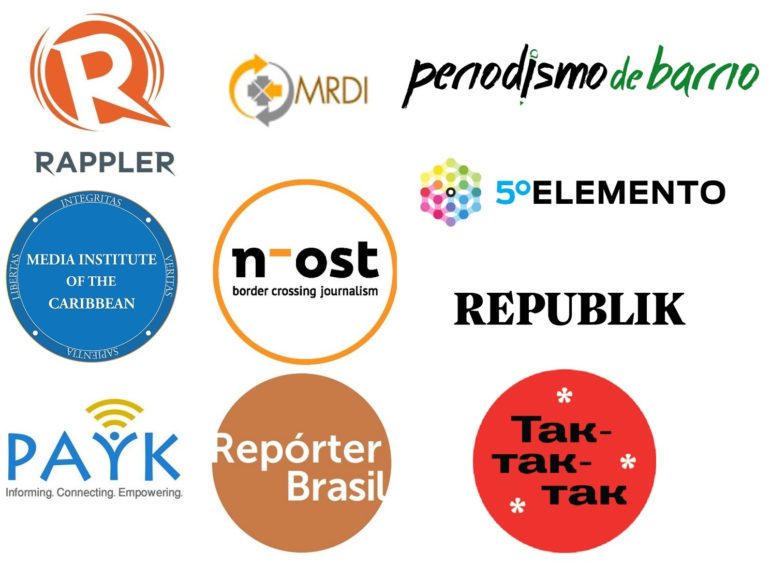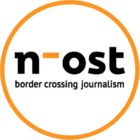

GIJN Welcomes 10 New Members from 10 Countries
 The Global Investigative Journalism Network is delighted to welcome 10 new member organizations. We are particularly pleased to welcome for the first time groups from Afghanistan, Bangladesh, Cuba and Trinidad and Tobago.
The Global Investigative Journalism Network is delighted to welcome 10 new member organizations. We are particularly pleased to welcome for the first time groups from Afghanistan, Bangladesh, Cuba and Trinidad and Tobago.
It’s an extraordinary set of organizations. Along with training centers in Afghanistan, Bangladesh and Trinidad, our new members include a Cuban environmental reporting site, a Brazilian newsroom focused on human rights, a Mexican media lab, a Russian citizen investigative center, a Swiss startup magazine, a European reporting network and a Philippine investigative reporting center.
The new groups bring GIJN’s global membership to 163 groups in 72 countries. You can find a full listing in our members directory on gijn.org. Membership in the Global Investigative Journalism Network is open to nonprofits, NGOs and educational organizations, or their equivalent, that actively work in support of investigative reporting and related data journalism.
Please join us in welcoming our newest members to GIJN:
 Journalism for Nation Building Foundation (Philippines) is the nonprofit affiliate of Rappler, the Philippines’ leading independent online news site (currently under assault by the Duterte government). The foundation sponsors training, fellowships and in-depth journalism that provides context to important issues and pushes for greater transparency and accountability of officials and institutions.
Journalism for Nation Building Foundation (Philippines) is the nonprofit affiliate of Rappler, the Philippines’ leading independent online news site (currently under assault by the Duterte government). The foundation sponsors training, fellowships and in-depth journalism that provides context to important issues and pushes for greater transparency and accountability of officials and institutions.
 Management and Resources Development Initiative (Bangladesh) is a leading media training organization based in Dhaka, specialized in quality issue-based training and research for news media. A major focus for MRDI is increasing the investigative reporting capacity of journalists in the country. It also introduced Right to Information as a tool for investigative journalism in Bangladesh.
Management and Resources Development Initiative (Bangladesh) is a leading media training organization based in Dhaka, specialized in quality issue-based training and research for news media. A major focus for MRDI is increasing the investigative reporting capacity of journalists in the country. It also introduced Right to Information as a tool for investigative journalism in Bangladesh.
 Media Institute of the Caribbean (Trinidad and Tobago) is a non-profit organization, think tank and resource and training center for the Caribbean. It provides media resources and training, suggests alternatives to regional media challenges and works with the Caribbean news media to strengthen investigative techniques and facilitate media innovators and entrepreneurs. It maintains a second office in Jamaica.
Media Institute of the Caribbean (Trinidad and Tobago) is a non-profit organization, think tank and resource and training center for the Caribbean. It provides media resources and training, suggests alternatives to regional media challenges and works with the Caribbean news media to strengthen investigative techniques and facilitate media innovators and entrepreneurs. It maintains a second office in Jamaica.
 n-ost (Germany) is a journalism network that produces cross-border projects in the EU, with a focus on investigative reporting in Eastern Europe. It serves as an editorial office and syndication agency, and implements a wide range of projects that include an annual international media conference, annual reportage prize, grants for cross-border research and a network for media literacy.
n-ost (Germany) is a journalism network that produces cross-border projects in the EU, with a focus on investigative reporting in Eastern Europe. It serves as an editorial office and syndication agency, and implements a wide range of projects that include an annual international media conference, annual reportage prize, grants for cross-border research and a network for media literacy.
 PAYK Investigative Journalism Center (Afghanistan) has become a leading hub for investigative reporting in this embattled country. Since its founding in 2013, the nonprofit center has trained over 150 journalists and produced over 100 stories on corruption, human rights, arms trafficking, women’s rights and more. PAYK (pronouncced Pike) also works to provide protection to Afghan journalists.
PAYK Investigative Journalism Center (Afghanistan) has become a leading hub for investigative reporting in this embattled country. Since its founding in 2013, the nonprofit center has trained over 150 journalists and produced over 100 stories on corruption, human rights, arms trafficking, women’s rights and more. PAYK (pronouncced Pike) also works to provide protection to Afghan journalists.
 Periodismo de Barrio (Cuba), or Neighborhood Journalism, “publishes hidden stories based on original research” with a focus on critical social issues affecting the lives of common citizens in Cuba. The team specializes in covering the impact of climate change and natural disasters on vulnerable populations, as well as the management of natural resources, loss of biodiversity, energy policies, mining, food security, housing and construction policies, environmental pollution and restructuring of the sugar industry.
Periodismo de Barrio (Cuba), or Neighborhood Journalism, “publishes hidden stories based on original research” with a focus on critical social issues affecting the lives of common citizens in Cuba. The team specializes in covering the impact of climate change and natural disasters on vulnerable populations, as well as the management of natural resources, loss of biodiversity, energy policies, mining, food security, housing and construction policies, environmental pollution and restructuring of the sugar industry.
 Quinto Elemento Lab (Mexico), or the Fifth Element, was founded in 2016 by four renowned Mexican investigative reporters to work with and mentor Mexican journalists through the progress of their investigations. Its projects include grants, fellowships and support in investigation, editing, design, visualization and diffusion. Quinto Elemento’s staff also publish their own investigations, ranging from corruption and money laundering to the uncovering of mass graves in Mexico.
Quinto Elemento Lab (Mexico), or the Fifth Element, was founded in 2016 by four renowned Mexican investigative reporters to work with and mentor Mexican journalists through the progress of their investigations. Its projects include grants, fellowships and support in investigation, editing, design, visualization and diffusion. Quinto Elemento’s staff also publish their own investigations, ranging from corruption and money laundering to the uncovering of mass graves in Mexico.
 Repórter Brasil (Brazil) is a nonprofit organization founded by journalists, social scientists and educators with the aim of bringing attention and action to the violation of fundamental rights of people and workers in Brazil. Its journalists have won over 20 awards for coverage of human rights and social and environmental issues, including the Gabriel García Márquez Journalism Award, while their stories have influenced public policy and served as a reference for others in the media.
Repórter Brasil (Brazil) is a nonprofit organization founded by journalists, social scientists and educators with the aim of bringing attention and action to the violation of fundamental rights of people and workers in Brazil. Its journalists have won over 20 awards for coverage of human rights and social and environmental issues, including the Gabriel García Márquez Journalism Award, while their stories have influenced public policy and served as a reference for others in the media.
 Republik (Switzerland) is a startup media cooperative based in Zurich, Switzerland. Launched in early 2018, it covers a broad range of political, business, and social issues, with special attention to gender issues. In its initial crowdfunding campaign, the group raised nearly US$800,000 in crowdfunding, and has secured some $3.7 million in backing from over 19,000 supporters. With a 20-strong staff, Republik has launched a $250,000 annual fund to finance large scale investigations.
Republik (Switzerland) is a startup media cooperative based in Zurich, Switzerland. Launched in early 2018, it covers a broad range of political, business, and social issues, with special attention to gender issues. In its initial crowdfunding campaign, the group raised nearly US$800,000 in crowdfunding, and has secured some $3.7 million in backing from over 19,000 supporters. With a 20-strong staff, Republik has launched a $250,000 annual fund to finance large scale investigations.
 “Tak-tak-tak” Foundation for Promotion of Mass Communication and Education in the Sphere of Law (Russia) began in 2013 to continue work by the Press Development Institute-Siberia to develop new methods of citizen and public investigative journalism. It brings together citizens, human rights defenders and journalists on social issues and human rights through legal consultations, investigative reporting and training seminars and workshops. Based in Novosibirsk, Siberia, Tak-tak-tak opens its site to investigative projects from any person.
“Tak-tak-tak” Foundation for Promotion of Mass Communication and Education in the Sphere of Law (Russia) began in 2013 to continue work by the Press Development Institute-Siberia to develop new methods of citizen and public investigative journalism. It brings together citizens, human rights defenders and journalists on social issues and human rights through legal consultations, investigative reporting and training seminars and workshops. Based in Novosibirsk, Siberia, Tak-tak-tak opens its site to investigative projects from any person.








